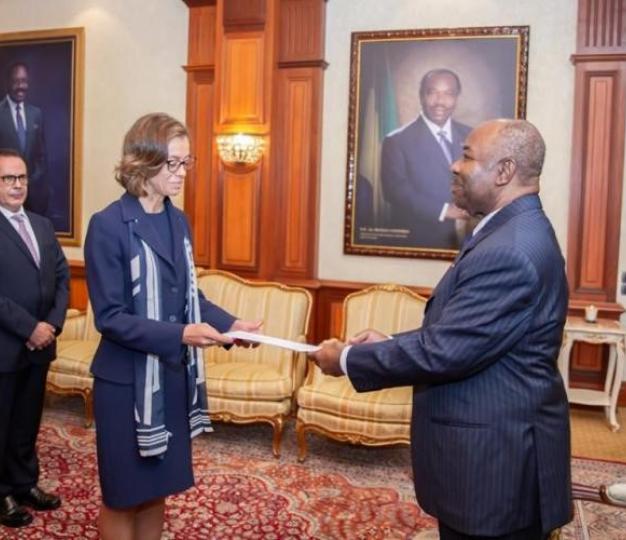RELATIONS WITH THE EU
The European Union, Gabon, São Tome-and-Principe, and ECCAS
The Cotonou Agreement, signed in 2000 in the capital of Benin and revised in 2005, which links the European Union to the countries of Africa, the Caribbean and the Pacific (ACP), is the basis of the partnership between the EU and Gabon. The new version of the Cotonou Agreement is being implemented.
Today it is based on five interrelated pillars:
- Strengthening political partnership.
- Promotion of peace, security, democratic governance and human rights.
- Development strategies and the objective of poverty reduction.
- The establishment of a new framework for economic and commercial cooperation.
- Reform of financial cooperation.
Political Relations
The EU Delegation maintains a regular political dialogue with the authorities of Gabon on themes such as development, the environment, gender equality, migration, the arms trade, respect for human rights or democratic principles.
Economic Relations
Trade relations between Gabon and the European Union are governed by the trade chapter of the Cotonou Agreement, the new version of which is awaiting implementation
The objective of this vast assistance and trade agreement is to promote and accelerate the economic, cultural and social development of the ACP States on the one hand and to deepen and diversify their relations with the European Union and its Member States in a spirit of solidarity and mutual interest on the other hand.
Since January 1, 2008, Gabon has benefited from the European Union's Generalized Preferences System (GSP). However, since January 1, 2014, Gabon can no longer benefit from this system of preferences, following the adoption by the European Union of its new GSP (Regulation No. 978/2012 of October 25, 2012) which now reserves the Preferences to “low income” and “lower middle income” countries according to the World Bank classification. However, since Gabon is classified as an “upper-middle-income country”, it can no longer benefit from this regime.
However, it is ranked 111th out of 189 countries in the Human Development Index 2014 United Nations (HDI).
Trade Relations
The economic partnership agreement with Central Africa
Gabon and Sao Tome and Principe are part of the “Central Africa” regional configuration which is currently negotiating an Economic Partnership Agreement (EPA) with the European Union. This configuration also includes the other member states of CEMAC (Cameroon, Central African Republic, Congo, Chad) and the Democratic Republic of Congo.
This agreement currently under negotiation constitutes one of the alternatives which would allow Gabon to guarantee free access to the European market for all its products and for an unlimited period.
Fisheries Partnership Agreement
The Fisheries Partnership Agreement was concluded between the EU and Gabon on July 24, 2013, for a tacitly renewable 6-year period. In 2021 it was the subject of an amendment with the Gabonese government.
Technical and Financial Cooperation
As a middle-income country, Gabon’s 11th EDF envelope is subject to the differentiation criterion (13 million euros versus 39 million euros from the 10th EDF).
The EU will concentrate its support in a single sector, namely "technical and vocational education" with the aim of supporting Gabon in its economic diversification and job creation. This sector is insufficiently developed and structured to meet current and future demand for skilled labor. The sector's choice proposal is part of the "Gabon Emerging 2025 Strategic Plan" which is based on three pillars: Green Gabon, Industrial Gabon and Services Gabon.
In the area of cooperation, the overall objective of the EU is to promote sustainable growth and development in order to reduce poverty.
Dialogue with Civil Society
One of the innovative points of the Cotonou Agreement is support for non-state actors (NSAs).
In Gabon, the European Commission has supported non-state actors by financing, through the EDF, a project to support the strengthening of non-state actors (Progreane).
Progreane's objectives were:
- Strengthening in their capacity to organize and mobilize NSAs at the national level on public debates relating to the improvement of the living conditions of populations and of social issues (9 networks formed).
- Capacity building of NSAs at the level of their internal structure and the training of their members in order to increase their capacities as service providers.
More information on the projects and programs funded in Gabon can be found in the project section.

